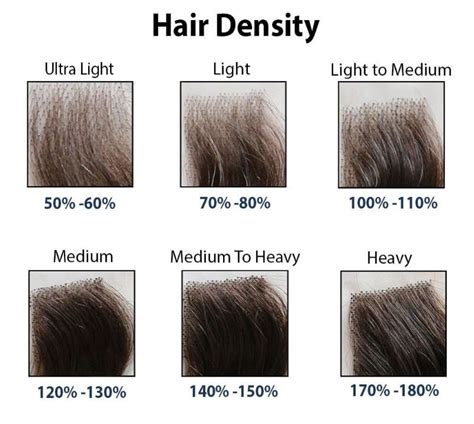Understanding Hair Extension Density
Hair extension density, measured in grams per pack, refers to the amount of hair in a single bundle. The higher the density, the thicker and more voluminous the hair extensions will be. Two common densities used in hair extensions are 260 and 180 grams.

260 Density
Pros:
- Thicker, fuller hair: 260 density extensions provide significant volume and can transform fine or thinning hair into a luxurious, thick mane.
- Versatile styling: Due to their thickness, 260 density extensions can be styled in various ways, from voluminous curls to sleek ponytails.
- Long-lasting wear: The higher density makes extensions less prone to tangling and breakage, leading to longer wear time.
Cons:
- Heavier: 260 density extensions can be heavier than other densities, which may cause discomfort for some wearers.
- More expensive: The increased amount of hair in each pack results in a higher cost compared to lower density extensions.
180 Density
Pros:
- Lightweight and comfortable: 180 density extensions are lighter and less bulky, making them suitable for people with sensitive scalps or those who prefer a more natural look.
- Affordable: Lower density extensions are generally more affordable than higher density ones.
- Less maintenance: 180 density extensions require less brushing and styling due to their reduced thickness.
Cons:
- Less volume: 180 density extensions may not provide the same level of volume as 260 density extensions, which can be a limitation for those seeking maximum thickness.
- May require layering: For thicker hair, multiple packs of 180 density extensions may need to be applied to achieve the desired volume.
Table 1: Comparison of 260 and 180 Density Hair Extensions
| Feature | 260 Density | 180 Density |
|---|---|---|
| Density (grams/pack) | 260 | 180 |
| Thickness | Thick, voluminous | Lightweight, less bulky |
| Volume | High volume | Moderate volume |
| Weight | Heavier | Lighter |
| Styling versatility | Great | Good |
| Wear time | Longer | Shorter |
| Cost | More expensive | Affordable |
| Maintenance | More brushing and styling | Less maintenance |
Tips and Tricks for Choosing the Right Density
- Consider your hair type: Fine or thinning hair benefits from 260 density, while thick, healthy hair can handle 180 density.
- Think about your lifestyle: 260 density extensions may be too heavy for active individuals or those who prefer a more natural look.
- Consult a hair professional: An experienced stylist can assess your hair and recommend the best density for your needs.
- Start with a lower density: You can always add more packs of extensions later if needed.
Step-by-Step Guide to Choose Hair Extensions Density
- Determine your hair type and thickness.
- Research different hair extension densities and their pros and cons.
- Consult with a hair professional for personalized advice.
- Consider your lifestyle and preferences.
- Start with a lower density and gradually add more extensions if desired.
Table 2: Density Recommendations Based on Hair Type
| Hair Type | Recommended Density |
|---|---|
| Fine or thinning hair | 260 |
| Medium thickness | 200-220 |
| Thick, healthy hair | 180-200 |
Revolutionary Idea: “Voluminizing Virtue”
260 density hair extensions offer a transformative solution for hair volume enhancement. By embracing this “voluminizing virtue,” individuals can achieve enviable fullness and thickness, even with naturally fine or thinning hair.
Table 3: Table of Hair Extension Quantities Based on Hair Length
| Hair Length | 260 Density | 180 Density |
|---|---|---|
| 12-16 inches | 1-2 packs | 2-3 packs |
| 18-22 inches | 2-3 packs | 3-4 packs |
| 24-28 inches | 3-4 packs | 4-5 packs |
Table 4: Table of Hair Extension Prices Based on Density
| Density | Price Range |
|---|---|
| 180 | $100-$200 per pack |
| 260 | $150-$300 per pack |
Conclusion
Choosing the right hair extension density depends on your individual preferences and hair characteristics. 260 density extensions provide maximum volume and thickness, while 180 density extensions offer a more lightweight and natural look. By carefully considering the factors discussed in this guide, you can make an informed decision that enhances your hair and boosts your confidence.
